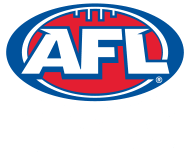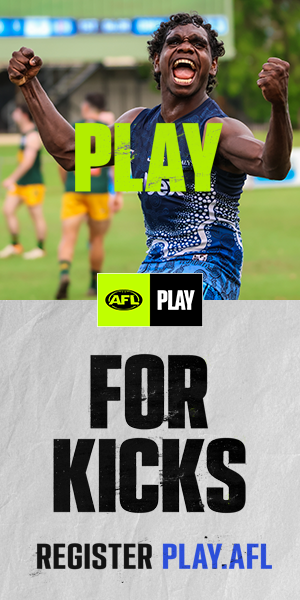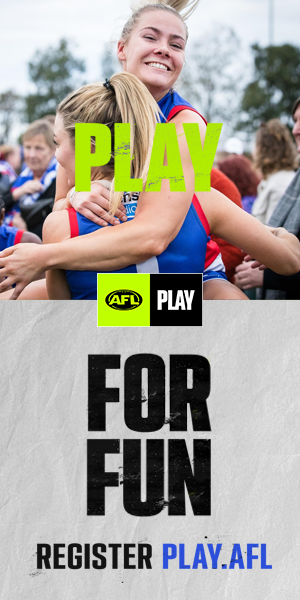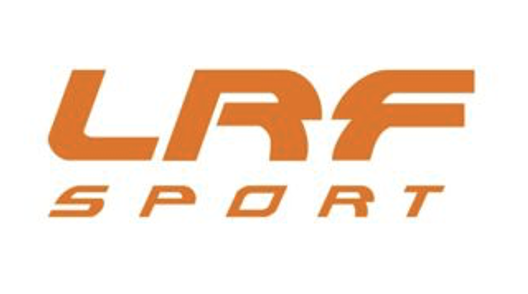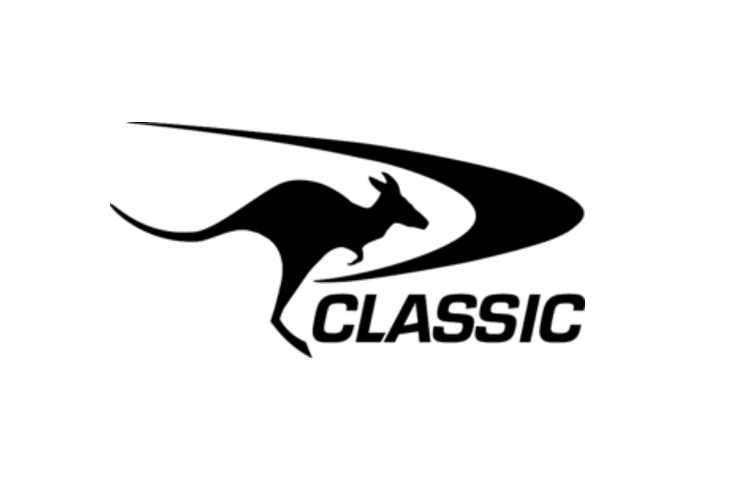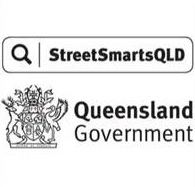Sherwood is a people-first club in Brisbane’s western suburbs that has played a big role in Queensland football, highlighted by a staggering eight consecutive premierships at SQAFA level from 1975-82.
It earned the club that wears the black and white stripes of Collingwood and is known as the Magpies, promotion to the then QAFL in 1983 with Southport as the game’s explosion in south-east Queensland took off.
One-time AFL games record-holder John Rantall, a 336-game star with South Melbourne, North Melbourne and Fitzroy and a Team of the Century member at the Swans and the Kangaroos, coached Sherwood in their entry to the ‘big time’.
It had been a golden era for a club that was originally formed in1956 and produced some of the great Queensland players along a journey in which they changed identities as the competition in south-east Queensland evolved in the years that followed.
The SQAFA (South Queensland Australian Football Association), formed in 1970 as the second-tier competition below the QAFL, was dominated in its first five years by Sherwood and Mt. Gravatt. The Magpies won the flag in 1970-73 and the Vultures in 1971-72-74 before the golden era began.
Already Alan Hunter (Footscray), Ray Smith (Essendon/Melbourne), Robert Shepherd (Fitzroy) and Colin Kimmorley (Collingwood) had been among the early Queenslanders to play in the then VFL.
In 1975, Sherwood beat University by 54 points in the grand final under coach Ted Gibson and captain Des Hogan at the Gabba, and in 1976 they knocked off old foes Mt. Gravatt by five goals at Sherwood. Club legend Maurie McNamee was coach, and Hogan, a champion at centre half back, was captain.
In 1977 they landed their big recruiting coup when Les Foote, a 167-game AFL player with North Melbourne and St.Kilda from 1941-55 and St.Kilda captain-coach in 1954-55, was appointed coach. A four-time club best and fairest winner and Victorian representative later inducted into the AFL Hall of Fame, 53-year-old Foote masterminded one of the great comebacks in Queensland football history in September.
After losing by 125 points to Mt.Gravatt in the second semi-final, Sherwood, captained by Steve Rendells, got over the top of Acacia Ridge by 19 points in the preliminary final. After a wild brawl at three-quarter time which involved players, officials, and spectators at Yeronga, they beat Mt. Gravatt by seven points. Magpies favourite Jeff Langdon, making a fashion statement wearing rarely seen white boots, took 21 marks in the second half back to be named best afield. After the game he was taken to hospital with exhaustion and learned he had a heart valve problem.
In eight years of the SQAFA Sherwood and Mt. Gravatt had each won four flags, but a strong push for both to be promoted to the QAFL was rejected.
In 1978 under captain-coach Lindsay Jacob, Sherwood was beaten only once in the home-and-away season and beat Mt. Gravatt in the grand final by 54 points at Mt. Gravatt. In 1979, when Sherwood junior Colin Kimmorley returned to the club as coach after a stint at Collingwood, they enjoyed a magnificent undefeated premiership under captain Bruce O’Neill which culminated in a grand final win at Acacia Ridge over Mt. Gravatt. Again.
In 1980, with Lindsay Jacob the new captain-coach, Sherwood again lobbied for promotion to the QAFL, this time on their own, after eight key players ‘defected’ to Kedron to play under Norm Dare in the QAFL, or at least committed to both clubs. The Magpies played by invitation in the QAFL Pre-Season competition, beating Windsor-Zillmere to win the Leach Motors Pre-Season Trophy, but still they were stone-walled by the senior body ahead of a 73-point grand final win over Mt. Gravatt for a sixth consecutive SQAFA flag. Regular centre half back Mark Gersekowski played at centre half forward and kicked eight goals, while Phil Anderson was best afield at fullback.
In an extraordinary sequence of events that year, seven players played in three premierships – the QAFL Pre-Season Premiership with Sherwood, the QAFL premiership with Kedron, and the SQAFA premiership with Sherwood. They were Bruce and Tony Smith, Greg Butler, Craig St John, Craig Lashman, Tony Lingard and Phil Anderson. It would have been eight had Jacobs not broken his hand in the QAFL grand final, leaving Warren Selvage to captain the SQAFA flag.
In 1981, with Selvage the new captain-coach, they lost only one home-and-away game and beat Acacia Ridge by five goals in the grand final at Mt. Gravatt. Local youngster Alan Giffard, later to be runner-up in the 1984 QAFL Grogan Medal and play with the Brisbane Bears, kicked eight goals in the decider and 122 goals for the season to top the SQAFA goal-kicking.
In 1982, still under Selvage, they enjoyed an average winning margin through the home-and-away season of 133 points as locals Giffard and Greg Stewart each kicked 100-plus goals. They beat Wynnum by 29 points in the second semi-final and again by 49 points in the grand final at Yeronga. It was the day John Cawcutt was best afield in the grand final. Giffard finished the season with 115 goals for his second ‘ton’ and his second SQAFA goal-kicking award in a row.
Sherwood had won eight premierships in a row and 10 in 13 years. From 1978-82 they’d won 112 of 116 games, including 59 in a row from early 1978 until late 1980. Selvage and Des Lashman had played in seven of the eight flags, and club legend Bill Peirce, who played more than 600 games for Sherwood from juniors to seniors and later won the 1983 QAFL Grogan Medal, played in five of the eight-flag streak with Bruce O’Neill and Ross Stewart. Jim Evans played four of the eight consecutive flags and six of the 10 overall, while Selvage, who in 2018 would win the AFLQ Merit Award for services to football, played in nine flags overall.
Finally, League officials could no longer say no. Sherwood and Southport joined the QAFL in 1983.
In 2006, as Sherwood celebrated their 50th anniversary, the club set out to name their best 50 players based not just on footballing excellence but also on overall contribution to Queensland football. It was a list that ultimately grew to 53 players and included 2023 Hall of Fame inductee Gary Shaw, who later played at Wests, was a star with Claremont in the WAFL and later played in the VFL/AFL with Collingwood and Brisbane.
At #1 was David Dalgarno, who captained the club’s first premiership side in 1958 in the Under 14s. He went on to play 200 QAFL games with neighbouring Wests, captaining the Bulldogs at age 20. He later coached Wests and captained a Queensland side that beat Canberra and NSW in 1966.
At #2 was Ray Smith, Queensland’s first 100-game AFL player at Essendon and Melbourne and one of Queensland sport’s great stories. A Sherwood junior until the Under 14s, he was senior player at Wests at 16 and State centreman as a teenager. But with his path to the then VFL blocked by AFL rules that classified Queensland, NSW and ACT as development regions, he turned to rugby league in 1970. Playing with Valleys, then the local competition’s No.1 team, he represented Brisbane in the then Bulimba Cup, played in a premiership and was a runner-up Player of the Year on a countback. He was being touted as a likely Australian selection the following year when he announced he was switching codes – again. With his path to the VFL cleared because he was a rugby league player, he joined Essendon in 1971, playing 77 games with the Bombers from 1971-75 before a mid-season switch to Melbourne, where he added 27 games from 1975-76. His brothers Bruce and Tony were also Sherwood stalwarts.
At #3 was Trevor Helyer, a member of the club’s first premiership team in 1958 and later a 100-game rover and long-time president at Wests, with Alan Hunter, Sherwood’s first VFL player, at #4. A quick, high-marking forward whose father Bill was the first Sherwood president, he played 15 games with Footscray from 1964-67.
At #5 was Alan ‘Doc’ Mackenzie, who played at Sherwood, Wests and Southport before an extraordinary 49 years as president at Southport after taking on the job at 27. A state team representative, state doctor and state selector, he went on to become an AFLQ Hall of Fame Legend.
Named #6 was Greg O’Neill, runner-up in the Grogan Medal in his first year of senior football at Wests before serious injury brought a premature end to his career. At #7 was Romas Jakavicius, who famously tied for the J.J.Williams Trophy for the best and fairest player at the 1961 Australian Schoolboys with none other than the legendary Alex Jesaulenko.
Completing the top 10 was the trio of John Lynch, Robert Shepherd and Colin Kimmorley, who went on to play at Wests, with Shepherd and Kimmorley also heading to the AFL. At #11 was Zig Mateja, the only person to captain Sherwood and Wests to a senior flag. He skippered Sherwood’s first flag at 19 in 1970 after having won the best and fairest the year before, and did likewise at Wests when they ended a 23-year drought in 1977. He later play in another Sherwood premiership in 1981. The list was:-
- David Dalgarno
- Ray Smith
- Trevor Hellyer
- Alan Hunter
- Alan Mackenzie
- Greg O’Neill
- Romas Jakavicius
- John Lynch
- Rob Shepherd
- Colin Kimmorley
- Zig Mateja
- Dennis Hogan
- Warren Selvage
- Glen Crompton
- Gary Shaw
- Hec Robinson
- Sel Short
- Rod Mill
- Rob Mitchell
- Jim Evans
- Ken Kassulke
- Greg Butler
- Peter Filler
- Ross Stewart
- Bill Peirce
- Jeff Langdon
- John Cawcutt
- Ian Anderson
- Mark Gersekowski
- Craig St John
- Alan Giffard
- Des Lashman
- Phil Anderson
- Alistair Gaw
- David Atkinson
- Steve Flintham
- Steve Rippon
- Greg Stewart
- Dean Parkin
- Michael Blackmore
- Hayden Kluver
- Adam Gillespie
- Tyson Kenny
- Craig Anderson
- Corey Lambert
- Chris Mihalopolous
- Marty Pask
- Patrick Garner
- Ross Catchpole
- Leigh Barnes
- Greg Adams
- Bruce Smith
- Tony Smith
In 2020, during COVID times, Sherwood also asked four club luminaries to pick their Sherwood All-Star Team based on performance alone for the club prior to the 1990 merger with Wests.
The selectors were noted club historian and ex-Sherwood and Mayne coach Kevin Kluver and ex-players Warren Selvage, Des Lashman and Craig St.John. With two 24-man teams and two 25-man teams (including emergencies), there were 38 players nominated in total.
Ten players were chosen in each side – Greg Adams, Ian Anderson, Phil Anderson Greg Butler, John Cawcutt, Alan Giffard, Lindsay Jacob, Ziggy Mateja, Bill Peirce and Craig St.John.
Eleven players selected in three teams were Glen Crompton, Jim Evans, Peter Filler, Mark Gersekowski, Dennis Hogan, Wayne Jackson, Jeff Langdon, Craig Lashman and Craig McKellar, plus Des Lashman and Selvage, who opted not to include themselves in their nominated team.
Others nominated were David Atkinson, Gary Glazebrook, Romas Jakavicius, Bruce O’Neill, Steve Rendells, Steve Rippon, Greg Stewart and Ross Stewart (2), Craig Anderson, Rob Black, Alistair Gaw, Paul Gersekowski,, John Gibson, Shayne Hill, Graeme Hodgson, Wayne Mill and Ian Price.
Kevin Kluver’s All-Sherwood team was:-
B: Des Lashman, Phil Anderson, Mark Gersekowksi
HB: Romas Jakavicius, Dennis Hogan, Warren Selvage
C: Craig St.John, Geoff McKellar, Greg Butler
HF: Bill Peirce, Peter Filler, Wayne Jackson
F: Glenn Crompton, Alan Giffard, Ian Anderson
R: Ziggy Mateja, Greg Adams, Lindsay Jacob (capt)
INT: John Cawcutt, Gary Glazebrook, Jim Evans, Jeff Langdon, Steve Rippon, Greg Stewart.
COACH: Maurie McNamee.
It was an era that left a lasting legacy, which continued in 2012 when Jackson Allen (Gold Coast) played in the AFL in 2012, followed in 2021 by Samson Ryan (Richmond) and in 2023 by Jaspa Fletcher (Brisbane).
